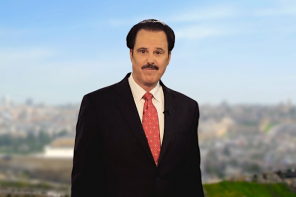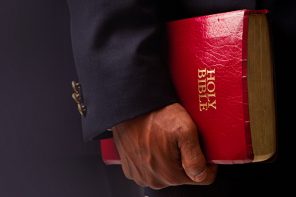10 questions for Michael Sean Winters on Left at the Altar: How the Democrats Lost the Catholics and How The Catholics can Save the Democrats
RD: What inspired you to write Left at the Altar? What sparked your interest?
MSW: For years I have been having a conversation, sometimes with others over dinner or after a provocative sermon, sometimes alone in the shower, about how my faith impacted my politics and vice-versa. Then, after the 2004 election, I was having lunch with Sean O’Malley, the archbishop of Boston, and in that grand profundo basso voice of his asked, “Michael – how did the Democrats lose the Catholic vote?” I did my best to answer at the time—in between bites of tuna fish and hummus—but on the way home I thought to myself that there is a book in the answer to that question.
What’s the most important take-home message for readers?
If you are a religiously motivated person, make sure your party respects and answers to your motivations. If it doesn’t, fight it. If you lose, switch parties. When fighting for the soul of the nation, there is no room for complacency.
Anything you had to leave out?
Nothing I would admit. Vatican secrets are very well kept!
What are some of the biggest misconceptions about your topic?
I think people view the Catholic Church as this remote, impregnable institution that is impervious to advice and discussion. From the outside, it might look that way, the same way a gothic church can look forbidding from the outside and is only really luminous when you get inside and see the stained glass windows. I have found the church, including the hierarchy, to be very receptive to my ideas, very open to discussion, very welcoming and encouraging, even when my thoughts stray from orthodoxy.
Did you have a specific audience in mind when writing?
I wanted to reach anyone who wrestles with the question of how religion should, and should not, influence politics. I especially want to reach those Democrats like me who are tired of holding our nose when we vote—we need to reclaim our party from those who have led it astray.
Are you hoping to just inform readers? Give them pleasure? Piss them off?
All of the above. If you are a Catholic and you have an intellectual conundrum, you do not brainstorm with a bunch of smart people. You look back at your tradition and try to discern wisdom therein, wisdom that will help you navigate your times and the issues you face. So, I hope the history of my book, which is really the first two-thirds of the book, will inform. The arguments are meant to piss off some and excite others. As for pleasure, I hate dull writing and try to make it lively. I hope I succeeded.
What alternate title would you give the book?
The title is perfect. I would not change it for all the tea in China.
How do you feel about the cover?
Hate it. I wanted a picture of JFK with nuns in full habit. We forget how greatly the world has changed in 50 years and there is nothing like seeing a nun in full habit to remind us.
Is there a book out there you wish you had written? Which one? Why?
Someday I would like to write about the anti-Catholicism of the Founding Fathers. My friend Alan Wolfe wants me to write a book about why I think the Reformation was a mistake. I gave a series of lectures on the history of the Reformation at St. Matthew’s Cathedral and I confess that topic excites me. I suspect I have many books inside me. I am very inquisitive.
What’s your next book?
I think my next book will look at how the role of religion in politics is changing as a result of the 2008 elections. It has been fascinating to watch. It is very hopeful to see the John Hagees and Jeremiah Wrights of the world get thrown under the bus. Just because you are speaking from a pulpit, you should not be freed from the expectation of reasonableness in the public domain. In similar fashion, the several tomes of the “new atheists” sold well, but they sold to the atheistic choir as it were and most reviewers correctly perceived that the arguments were lame. So, on both sides of the religious-secular divide, there was a certain willingness to insist that fanatics not be listened to. This is a great thing. It holds the promise that religion can re-enter America’s public square in a way that is reasonable and, just so, in a way that serves to unite Americans rather than to divide them. There are a zillion challenges, of course, but I think we are seeing a change in the politics of the pulpit that will be highly beneficial both to America’s politics and to our religion.




